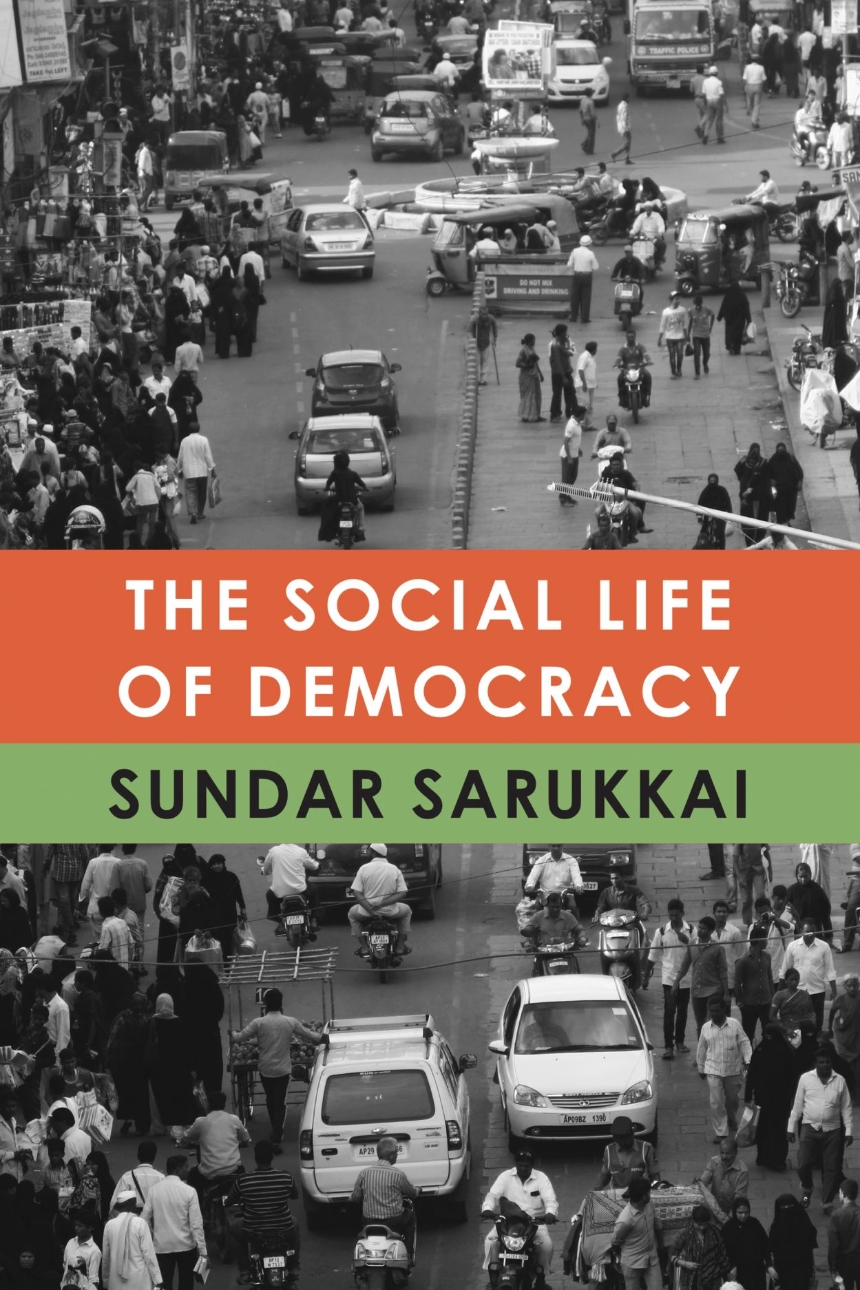Distributed for Seagull Books
The Social Life of Democracy
A plea for bringing democracy to our lived daily experience written in lucid prose.
TheSocial Life of Democracy is a response to the polarization of our times and the crisis in democracy being experienced across the world today. Drawing from B. R. Ambedkar’s view that democracy is not a form of government but more a form of society and mental disposition, this book argues that democracy needs to be seen as a form of social life that must be part of our everyday practice. Noting that the obstacles to realizing Ambedkar’s vision of democracy are both material and conceptual, philosopher Sundar Sarukkai critically examines the meaning of democratic action and the function of democracy in different domains ranging from homes to governments. He also examines its relation to labor, science, and religion, and analyzes the ethical processes that are central to democracy. Finally, clarifying the concepts of truth in politics and the ideas of freedom and choice, he persuasively argues in favor of bringing democracy into our everyday lives rather than leaving it exclusively in the domain of electoral politics.
TheSocial Life of Democracy is a response to the polarization of our times and the crisis in democracy being experienced across the world today. Drawing from B. R. Ambedkar’s view that democracy is not a form of government but more a form of society and mental disposition, this book argues that democracy needs to be seen as a form of social life that must be part of our everyday practice. Noting that the obstacles to realizing Ambedkar’s vision of democracy are both material and conceptual, philosopher Sundar Sarukkai critically examines the meaning of democratic action and the function of democracy in different domains ranging from homes to governments. He also examines its relation to labor, science, and religion, and analyzes the ethical processes that are central to democracy. Finally, clarifying the concepts of truth in politics and the ideas of freedom and choice, he persuasively argues in favor of bringing democracy into our everyday lives rather than leaving it exclusively in the domain of electoral politics.
184 pages | 6 x 9 | © 2022
Philosophy: Political Philosophy
Political Science: Political and Social Theory
Table of Contents
Preface
1.The Nature of Democracy
2.The Concept of Democracy
a.Indian Model of Democracy
b.Chinese Model of Democracy
c.The Myth of the People
3.Domains of Democracy
a.Democratic Self
b.Labour
c.Science, Technology and Democracy
d.Religion and Democracy
4.The Ethical Processes of Democracy
a.Ethical Act of Voting
b.Trusteeship
c.Creating an Experience of the Public
5.Democracy and Truth
a.Truth, Politics and Democracy
6.Democracy and Freedom
a.Freedom of Speech
b.Freedom to Dissent
c.The Problem about Freedom
1.The Nature of Democracy
2.The Concept of Democracy
a.Indian Model of Democracy
b.Chinese Model of Democracy
c.The Myth of the People
3.Domains of Democracy
a.Democratic Self
b.Labour
c.Science, Technology and Democracy
d.Religion and Democracy
4.The Ethical Processes of Democracy
a.Ethical Act of Voting
b.Trusteeship
c.Creating an Experience of the Public
5.Democracy and Truth
a.Truth, Politics and Democracy
6.Democracy and Freedom
a.Freedom of Speech
b.Freedom to Dissent
c.The Problem about Freedom

